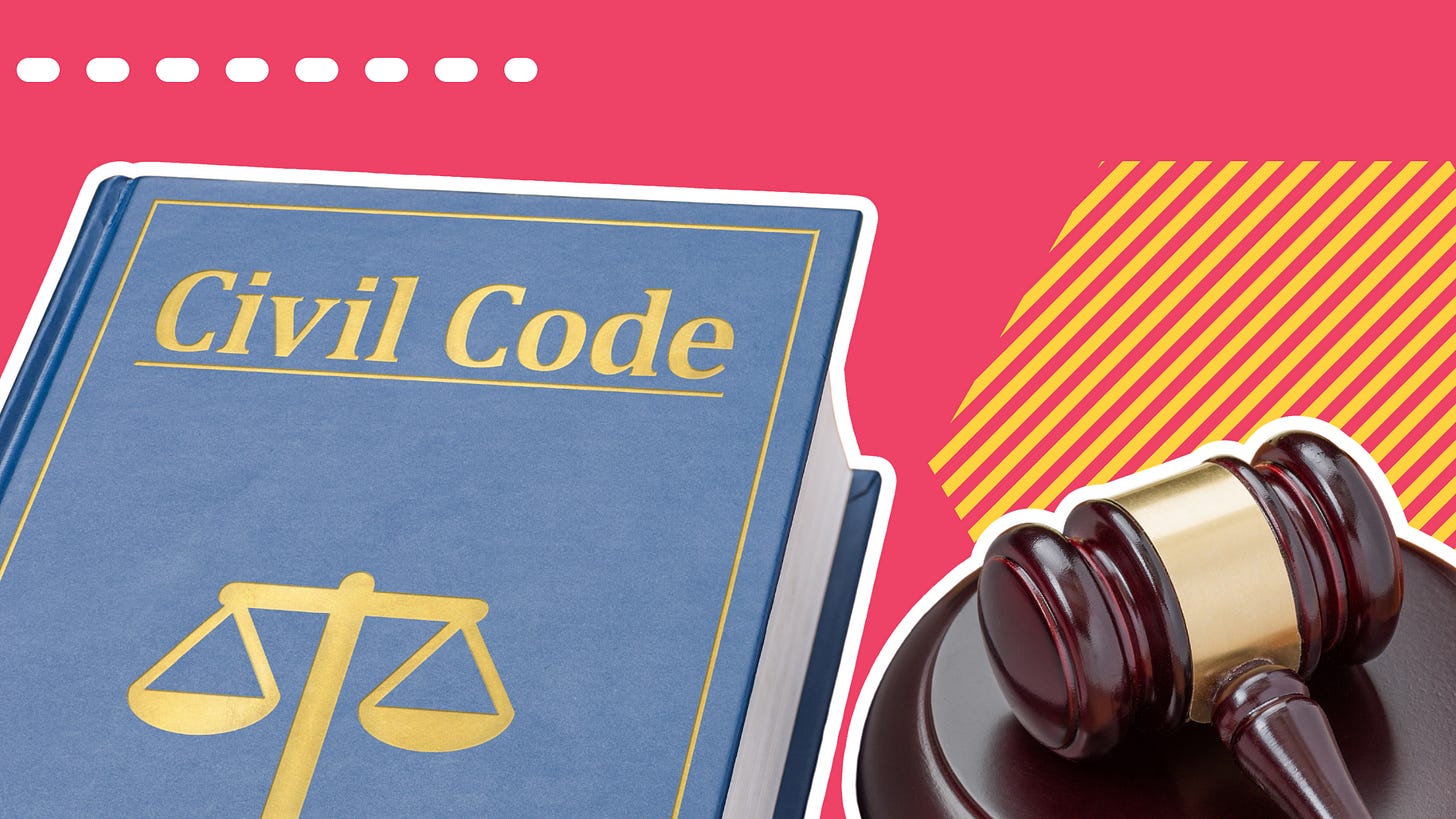Gujarat is considering adopting a Uniform Civil Code: What does it mean?
#7 On Article 44 of the Indian Constitution
On October 29, the Gujarat Home Minister Harsh Sanghavi announced that the state government is going to form a committee to implement uniform civil code within the state. A similar announcement was also made in Uttarakhand earlier in the year where a committee for considering a uniform civil code was set up.
But what is Uniform Civil Code?
Having uniform civil code, or UCC, would mean having one type of civil law applicable to the entire country. Everyone in the country, irrespective of their religious background, would be governed by one set of laws for marriage, divorce, adoption, inheritance, etc.
This is starkly different from the current position - where each religion has their own set of personal laws that govern such matters. A set of laws like the Hindu Marriage Act, Hindu Adoption and Maintenance Act, etc. apply to Hindus, Buddhists, Sikhs and Jains. Christians follow the Indian Christian Marriage Act and Muslims follow the Muslim Personal Law (Shariat) Application Act. Various tribal communities also follow their own practices when it comes to personal matters of marriage, divorce, etc.
Succession law too, is quite different for various religious groups and communities. Division of property after a person’s death would depend on which religion the person belonged too. Even if the deceased person has left a will, the procedure for execution of the Will would differ. For example, the wills of Christians and Muslims need not be probated.
Keeping aside the feasibility aspect, with UCC, the attempt would be to set aside all these different personal laws and bring in one set of civil laws that would be the same for all citizens, irrespective of their religion.
Is there already a law for UCC?
Article 44 of the Indian Constitution encourages the adoption of UCC. It states that
‘the State shall endeavour to secure for the citizens a uniform civil code throughout the territory of India’.
But it is important to note that Art 44 is not a mandatory provision. It comes under the Directive Principles of State Policy, a part of the constitution that is not justiciable – which means that the Courts cannot force the government to act on it. These principles only act as a guiding measure for the government.
In fact when this provision was being discussed while framing of the Indian Constitution, Dr BR Ambedkar noted that UCC would be desirable to address the discrimination against vulnerable groups but for then it should remain voluntary - an aspect that would be fulfilled when the nation is ready to accept it and the social acceptance to the UCC can be made.
He said,
"No one need be apprehensive that if the State has the power, the State will immediately proceed to execute…that power in a manner may be found to be objectionable by the Muslims or by the Christians or by any other community. I think it would be a mad government if it did so."
Is it possible for UCC to be applicable only within a state and not the whole country – like in the case of Gujarat and Uttarakhand?
Personally, even imagining a uniform civil law for the country or even a single state seems like a mammoth exercise. I can’t fathom where one would begin the process of implementing this. The respective State committee that are or would attempting to figure this out have their work cut out for them. However, there is a state in India that does follow a common civil code – Goa.
The history of how Goa, a former Portuguese colony, landed up with the Portuguese Civil Code is long and complicated. This author gives a succinct explanation of how this common civil law came to be adopted in the region, and also talks about how a uniform law is far from perfect.
Legally speaking, there is nothing stopping a state from making a law governing personal matters, as this subject falls in the List 3 (concurrent list) of Schedule VII of the Constitution. It is upon the committee set up by the respective states to discuss and deliberate upon the possible ways one could successfully introduce and implement a uniform civil law, but it definitely is not going to be easy. Just property law in itself differs vastly from state to state – trying to implement a UCC on top of an already chaotic system seems improbable.
--
While I’ve mentioned repeatedly how complicated this concept is, I would like to hear your questions on the topic. Write back or comment below if you have any questions or thoughts about UCC.
Yours,
KB



